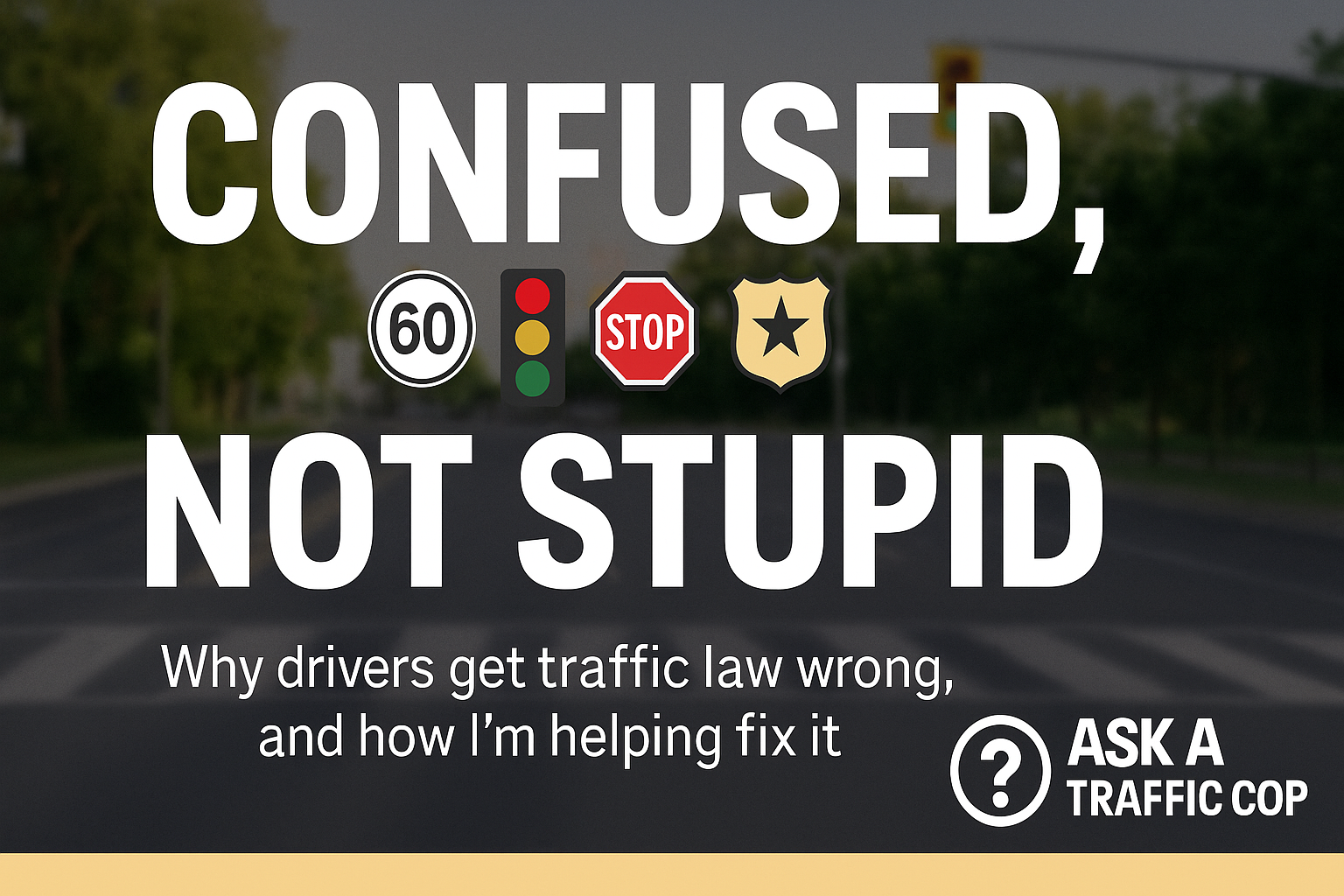When it comes to driving, traffic safety and the law, people generally aren’t clueless. The problem is they know what they know, and they don’t know what they don’t know. And when something comes up that challenges them, they often have very few reliable places to turn for good, accurate answers.
Try asking Google a simple question about driving. You’ll get five different answers. Some of that comes from different perspectives, but a lot of it comes from bias and bad information. Take window tint as an example. A window tint shop might tell you something is legal when it’s not, because that answer benefits their business. Unfortunately, that kind of information floats around online and becomes the version people believe.
Even AI tools like ChatGPT aren’t immune to this problem. They pull information from sources they find online, but they don’t always know whether those sources are reliable. If bad information gets published, AI may repeat it simply because it’s there.
Now, go to the government websites. The law is there, but it is often written in legal language that most people struggle to understand. You almost need a lawyer to explain what you’re reading. And even then, government websites sometimes contain outdated or incomplete information. I’ve seen people get advice from a ministry website, only to find that the statute or regulation has since changed. That adds another layer of confusion.
This is why I do what I do.
I don’t simply read the law to people. I apply professional interpretation. Yes, that includes my opinion, but it is a professional opinion based on years of experience enforcing these laws, backed by proper training, countless hours in court, conversations with prosecutors, judges, defense lawyers, and other officers who specialize in traffic enforcement. My interpretation comes from the real world where the law isn’t just words on paper but something we apply on the roadside, in courtrooms and in actual collisions that affect real people.
There’s a big difference between someone’s guess and an informed professional interpretation. And unfortunately, a lot of what’s floating around out there is guesswork, myths and misunderstanding. I hear it every day.
Even police officers sometimes get it wrong. Simply wearing a uniform doesn’t automatically make you a traffic expert. Most police officers are generalists. They deal with criminal calls, disputes, community issues, and everything else that policing throws at them. Traffic specialists, on the other hand, live and breathe traffic law every day. That depth of focus matters. Throughout my career, I’ve seen plenty of mistakes made by officers acting in good faith. But good faith doesn’t always equal accuracy. That’s why defense lawyers exist and why courts exist to sort out the complex situations that happen every day.
Now, confusion is one thing. But there’s another group we need to talk about: the people who simply don’t care.
There are people who believe the law doesn’t apply to them. People who see others breaking the law and getting away with it, so they assume they can do the same. People who think traffic tickets are nothing more than a cash grab. These are the people I try to reach by speaking not only to their minds but to their hearts. I want to help them see that traffic safety isn’t about a fine, it’s about lives. And some mistakes you can’t take back.
Recently, Toronto recorded its 19th traffic fatality for 2025 after a tragic motorcycle collision. In comparison, there have been 15 firearms-related homicides this year. Every year in Toronto, traffic deaths match or surpass homicides. But we don’t talk about traffic deaths like we do crime, even though globally traffic kills far more people year after year.
These aren’t just statistics to me. I’ve stood at those collision scenes. I’ve seen families broken. I’ve seen how one person’s decision can shatter multiple lives. This is not about tickets. This is about preventing people from dying or being seriously injured.
Speed plays a huge role in many of these tragedies. Speeding isn’t just about going a little faster. It dramatically reduces reaction time and makes every collision far more severe. A minor collision at 40 km/h can turn into a fatal one at 80 km/h. The old line that “speed doesn’t kill, it’s the sudden stop” misses the point entirely. Speed sets the stage. It removes your options. It removes the options of those around you. And often, the people who pay the price aren’t the ones behind the wheel.
Even when we build safer roads, human behavior still matters. Take roundabouts. They’re designed to reduce serious collisions. But if drivers don’t understand how to use them or choose not to follow the rules, that safety advantage gets wiped away. The safest road design only works when people respect the rules.
And let’s finally address the myth that traffic enforcement is all about revenue. It’s not. The cost of processing tickets, court time, officers being pulled off the road to testify, and administration all cost far more than people realize. Nobody’s getting rich off traffic tickets. Traffic enforcement exists because collisions are expensive in ways that can’t be measured in dollars: lost lives, broken families, hospital stays, emergency services, insurance hikes, and long-term care for victims.
Traffic law isn’t about catching people. It’s about trying to prevent collisions from happening in the first place. It’s about public safety.
Even though I’m now a civilian, I’m still committed to this mission. I still answer questions online. I still go live to explain how the law really works. Because if we can get people operating from a place of understanding, we can avoid a lot of the collisions and tragedies that continue to happen every single day.
If I don’t know an answer, I reach out to my trusted network of lawyers, prosecutors, and officers to find the correct information. That’s my promise. That’s what I do.
If you have a question, you know where to find me.


